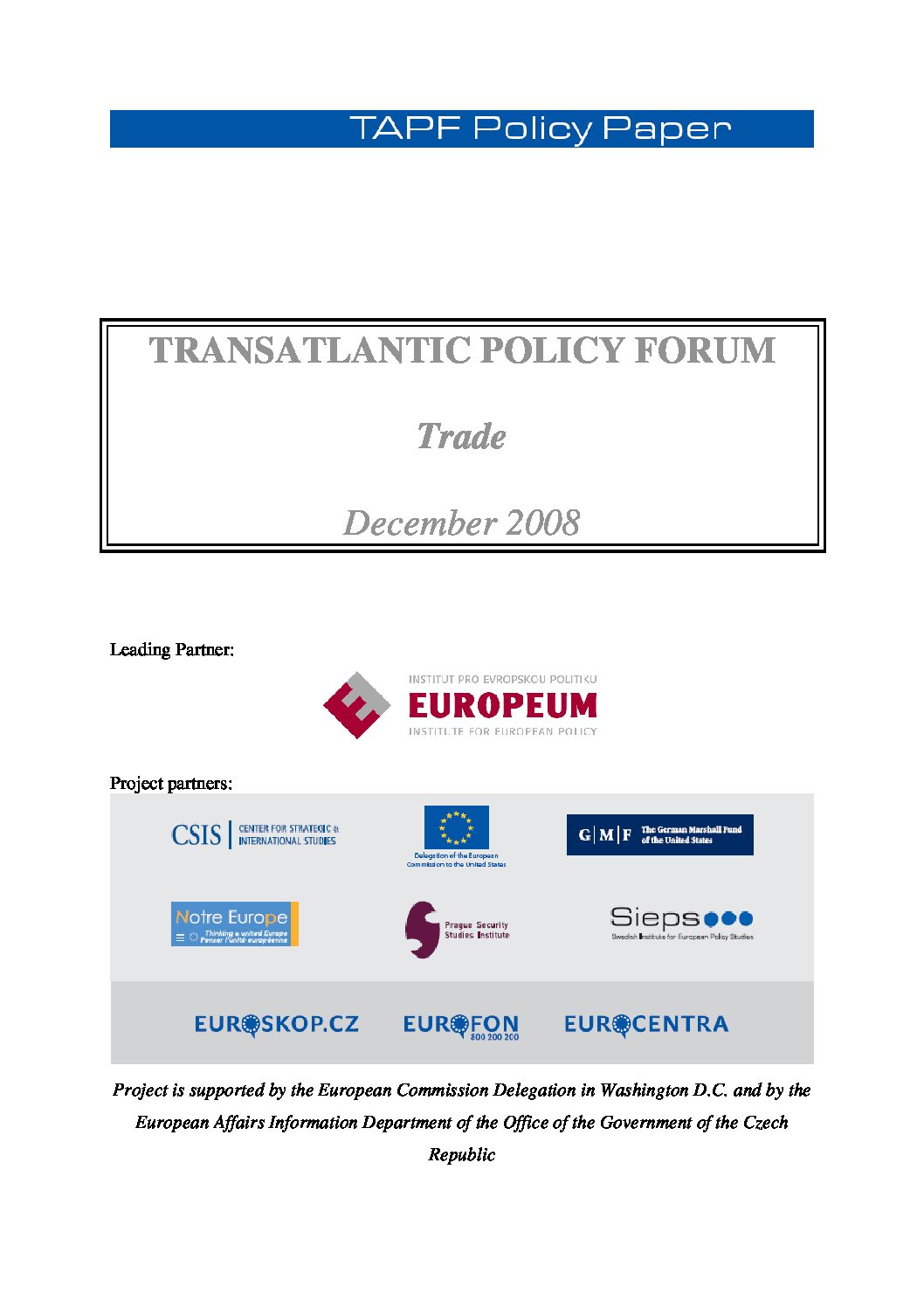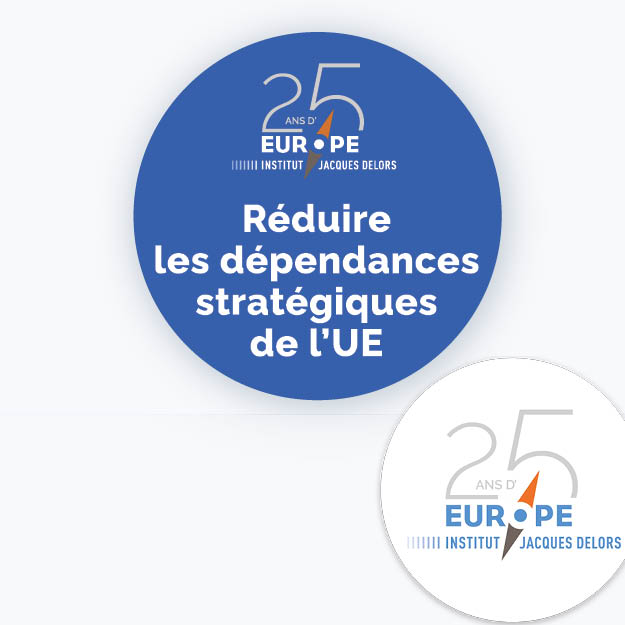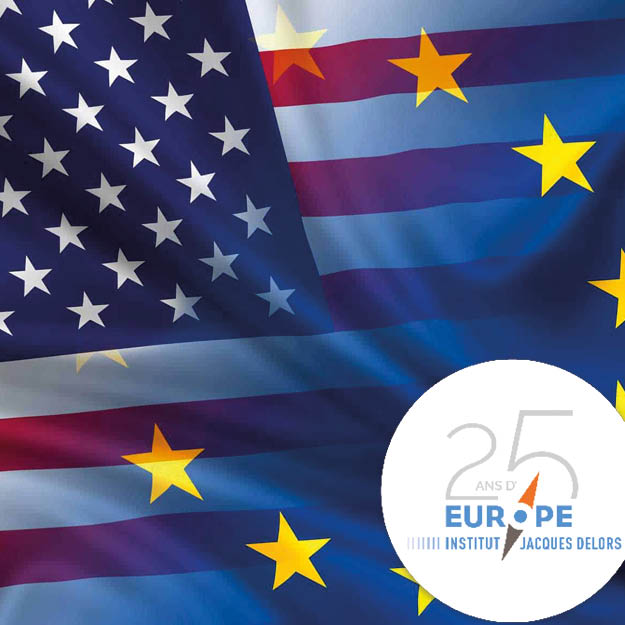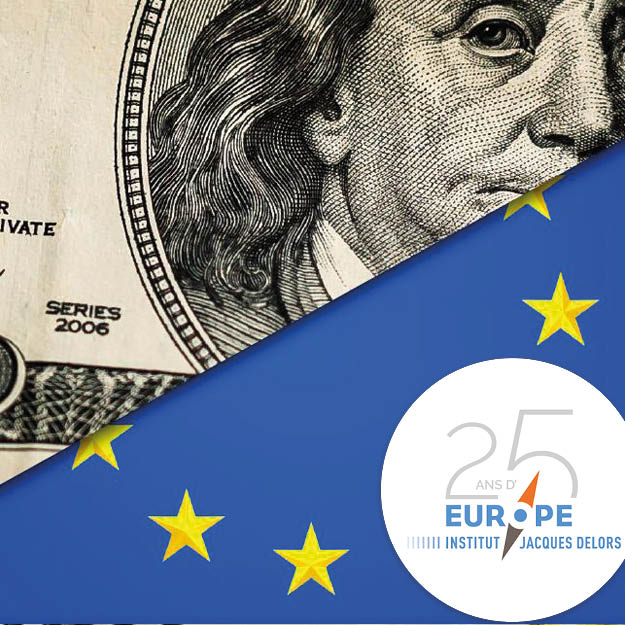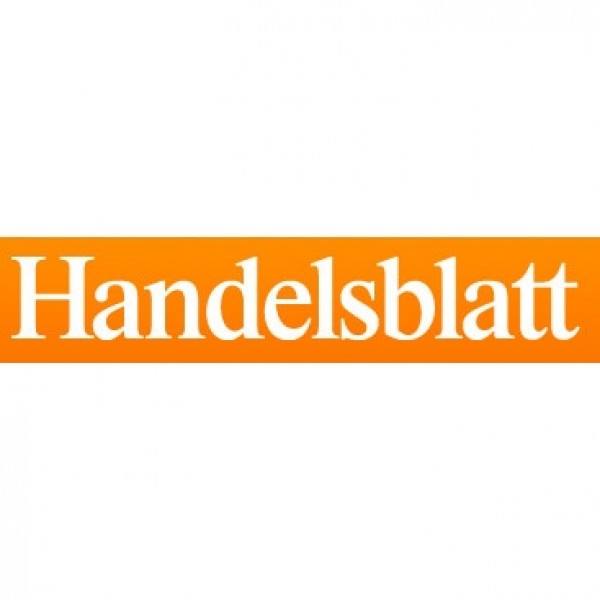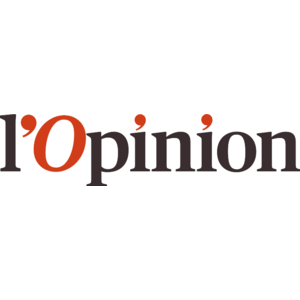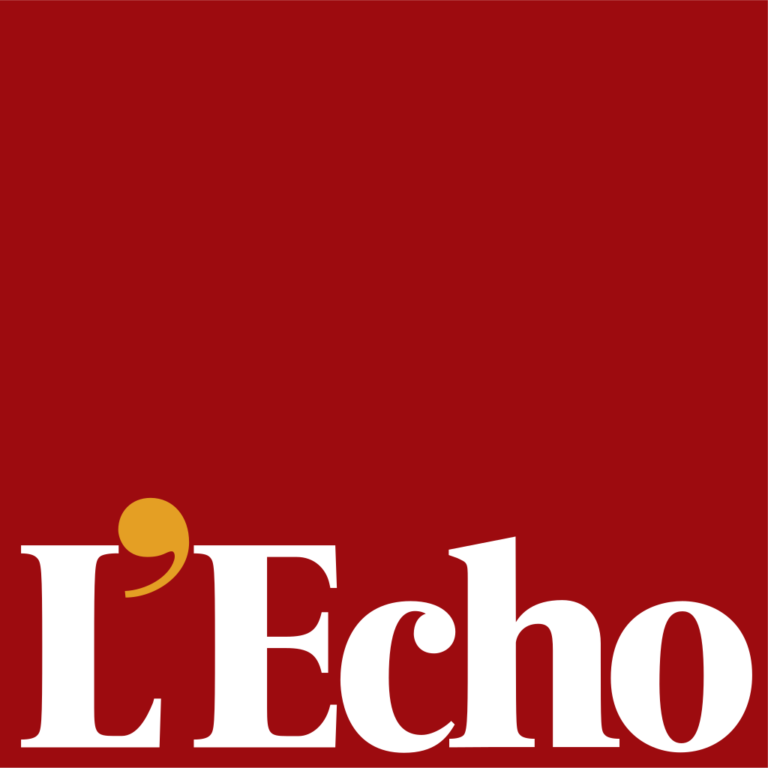Autre document
Le marché transatlantique et l’OMC
Dans le cadre du Forum Transatlantique, Notre Europe, le bureau de Paris du German Marshall Fund of the US et Europeum ont organisé un séminaire d’experts le 17 Décembre 2008 pour présenter les premières recommandations de la task force.
Dans le cadre du Forum Transatlantique, Notre Europe, le bureau de Paris du German Marshall Fund of the US et Europeum ont organisé un séminaire d’experts le 17 Décembre 2008 pour présenter les premières recommandations de la task force. Jean-Christophe Bureau présente une synthèse des débats (en anglais uniquement).
The trade relations between the EU and the US have no equivalent in the world, with integrated economies and huge cross-direct investments, in particular. The trade relationship between the entities has nevertheless been spotty during the last decade. Discussions regarding an EU-US free trade area initiated by Commissioner Brittan in the 1990s and briefly revived by Chancellor Merkel in 2007 have only led to somewhat symbolic decisions.1 Even modest trade facilitation agreements, such as the 1998 Agreement on mutual recognition of standards, have not been fully implemented. Since 2001, the two entities have often appeared more as enemies than partners in the Doha negotiations. Since the creation of the World Trade Organization (WTO) they have had numerous disputes over agriculture, steel, aircraft, services, taxation systems and various regulations. Other disagreements, not brought to the WTO, have also been numerous. Several of them have led to a bilateral compromise that is still considered as unpalatable by one of the parties (e.g. the « open skies » agreement, public procurement in the military sector, etc.).
In the agricultural and food area, many problems persist, even though many issues look relatively minor and technical when put in perspective with broader transatlantic geopolitical interests. The EU clings to high tariffs and regulatory restrictions in sectors of importance for US exporters such as meat and maize. Both the EU and US agencies impose de facto bans on imports of some of the other party’s agricultural products because of SPS (sanitary and phytosanitary) regulations. Many issues regarding intellectual property and mutual recognition of processing techniques remain unsolved.
SUR LE MÊME THÈME
ON THE SAME THEME
PUBLICATIONS
Réduire les dépendances stratégiques de l’UE

Permettre le renouveau de la coopération transatlantique

Sanctions extraterritoriales américaines

MÉDIAS
MEDIAS
Warum der Klimagipfel echte Fortschritte bringen könnte

Sommet climat de Biden: le bon élève européen veut peser dans le concert mondial

Biden s’élance derrière l’Europe vers la neutralité carbone










